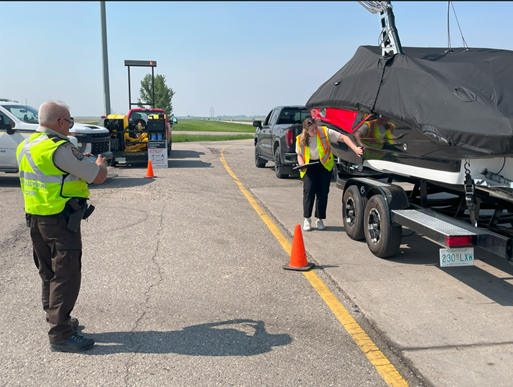REGINA — Boating season and while everyone is anxious to get to the lake, it's important to stop at all provincial watercraft inspection stations encountered while traveling and do your part to keep Saskatchewan free of aquatic invasive species (AIS).
Non-motorized equipment such as kayaks, canoes and paddleboards are also considered watercraft and must be inspected.
Even if those just passing through the province, or were already inspected in another province or state, are required to stop at all inspection stations encountered. Saskatchewan co-ordinates its inspection efforts with neighbouring provinces, states and the Canada Border Services Agency. When crossing provincial and international borders, look for inspection stations along highways and near waterbodies from early May to late October.
Whether you're returning home from out of province, coming to visit or moving between waters within Saskatchewan, make sure to follow the clean, drain, dry guidelines for your watercraft and all related equipment. To keep your watercraft free of invasive species and make the inspection go quickly, remember to:
- Clean: remove plants, animals and mud from trailers, hulls, motors and fishing equipment.
- Drain: drain all water (including bilges and livewells).
- Dry: allow all equipment to dry completely, ideally five days before travel, while leaving compartments open to dry.
- Pull the plug: leave plugs out during transport and tilt watercraft when stored to allow the bilge to drain. It is mandatory to remove all watercraft drain plugs while in transit.
If you buy an out-of-province watercraft in the fall after inspection stations are closed, contact the Ministry of Environment at 1-800-567-4224 to coordinate an inspection. Dry docking the watercraft will help reduce the likelihood of survival for many species of AIS. It is important to remember that possessing prohibited species such as zebra or quagga mussels is a violation of Saskatchewan's fisheries regulations, even if the organisms attached to your boat are dead.
So far, AIS such as zebra and quagga mussels have not been detected in our province's waters and we're working hard to keep it that way. Do your part to protect our waters and prevent the spread of AIS.

